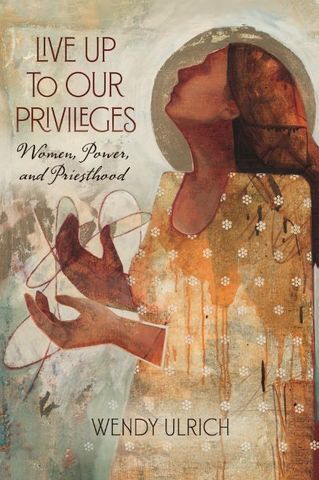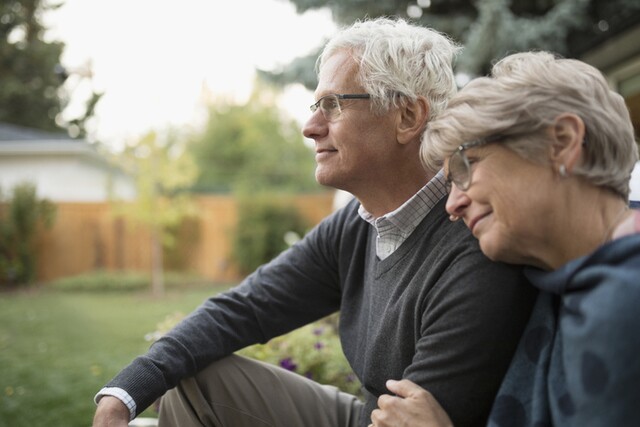Priesthood power is more than priesthood authority. With priesthood authority (authorization through someone holding priesthood keys), women and men can fulfill callings and assignments, represent the Church as missionaries, make covenants, and perform ordinances that are valid. With both priesthood authority and priesthood power, they can do these things in ways that magnify those callings, invite the Spirit, bless lives, develop spiritual gifts, and even bring about miracles. Relief Society General President Linda K. Burton affirms, “There is a difference . . . between priesthood authority and priesthood power. Priesthood authority is conferred by ordination, but priesthood power is available to all.”1
If both women and men can receive, develop, and use priesthood power—and apparently they can—then what exactly is priesthood power, and how do we receive more of it?
► You'll also like: 5 Ways Women Are Already Given Priesthood Authority and Officiate in Priesthood Ordinances in the Church
Priesthood Power Is Spiritual Power Used for Priesthood Purposes
Priesthood authority is permission to act in God’s name, extended through and to authorized messengers and representatives. It is conferred when priesthood holders with proper keys authorize other men and women to carry out various responsibilities and callings in the temple, in the Church, in the home, and throughout the world so God’s saving work can go forward. Priesthood power includes all the resources of God’s knowledge and omnipotence that can be accessed by men and women of covenant—through the gifts of the Holy Ghost and in the name of Jesus Christ—to use for authorized priesthood purposes. We might need priesthood power to fulfill priesthood purposes such as the following:
• Power to keep covenants we make under priesthood authority
(see D&C 45:8–9; 84:42–43; 1 Nephi 14:14).2
• Power to resiliently fulfill our foreordained mission and our priesthood-assigned work on earth (see D&C 138:55–56; Moses 1:6; Alma 26:15).
• Power to receive a fullness of the Holy Ghost (see D&C 109:15; 121:46).
• Power to build and strengthen covenant relationships within families, wards, Relief Societies, priesthood quorums, Young Women classes, presidencies, and councils.3
• Power to bless any and all of God’s children in our families, wards and branches, communities, nations, and throughout the world.4
• Power to know God, speak and act in His name, come into His presence, and be resurrected with His glory (see John 14:13–14; D&C 84:19–24; Moses 7:13, 59–60).
• Power to influence and empower others for good eternally, especially those we love (see Moses 1:38–39; D&C 121:41, 46; 132:19–20).
This list and related scriptures and quotations are packed with crucial contexts and motivations for learning and exercising true spiritual power.
Living Beneath, Living Up
Brigham Young notes that the Saints in his day were living far beneath the privileges listed above: “There is no doubt, if a person lives according to the revelations given to God’s people, he may have the Spirit of the Lord to signify to him his will, and to guide and to direct him in the discharge of his duties, in his temporal as well as his spiritual exercises. I am satisfied, however, that in this respect, we live far beneath our privileges.”5
More recently, Elder Dieter F. Uchtdorf has elaborated on this theme to priesthood bearers specifically: “The more we study the purpose, potential, and practical use of the priesthood, the more we will be amazed by its power, and the Spirit will teach us how to access and use that power to bless our families, our communities, and the Church. . . . We live beneath our privileges when we fail to partake of the feast of happiness, peace, and joy that God grants so bountifully to faithful priesthood servants.”6
Similar comments were made to priesthood bearers by President Boyd K. Packer: “Too many of our priesthood brethren are living below their privileges and the Lord’s expectations. We must go forward, confident of the supernal power of the priesthood. It is a source of strength and encouragement to know who we are and what we have and what we must do in the work of the Almighty.”7
President Russell M. Nelson has also said: “Too many of our brothers and sisters do not fully understand the concept of priesthood power and authority. They act as though they would rather satisfy their own selfish desires and appetites than use the power of God to bless His children.
“I fear that too many of our brothers and sisters do not grasp the privileges that could be theirs.”8
But the very first reference to living up to our privileges, as near as I can tell, is in Joseph Smith’s prophetic words to the women of the newly organized Relief Society: “It is natural for females to have feelings of charity—you are now placed in a situation where you can act according to those sympathies which God has planted in your bosoms. If you live up to these principles how great and glorious!—if you live up to your privileges, angels cannot be restrained from being your associates—females, if they are pure and innocent can come into the presence of God.”9
These promises to the women of the Church mirror the promises associated with the Aaronic and Melchizedek Priesthoods: the ministering of angels; the presence of God (see D&C 84:19–23, 26). These startling privileges completely reframe the purposes of our participation in the Relief Society, as well as the meaning and potential of our entire earthly experience. We live up to these privileges when we recognize the priesthood authority we can be given as women or men, participate in God’s work of saving and exalting His children, establish eternal families, complete our individual missions on earth, build Zion, raise the next generations of faithful Saints, and prepare the earth for the millennial reign of the Lord Jesus Christ. We live up to these privileges when we exercise our agency to grow spiritually and qualify for the gifts of the Holy Ghost so that we can act and speak with power. We live up to our privileges when we take the journey of faith and courage that culminates in coming into the presence of God and Christ and receiving all that They have.
God’s promised blessings are reaffirmed by President M. Russell Ballard: “All who have made sacred covenants with the Lord and who honor those covenants are eligible to receive personal revelation, to be blessed by the ministering of angels, to commune with God, to receive the fulness of the gospel, and, ultimately, to become heirs alongside Jesus Christ of all our Father has.”10
These promises are ours.
When as a little girl I broke bread onto a plate trying to replicate the sacrament, I had no concept of the privileges that awaited me as a daughter of God. While I do not act in the specific priestly role I imitated then, the priesthood-authorized callings and assignments I have filled and the priesthood promises I confidently seek infinitely surpass anything I then imagined. I once hoped to replicate the delicious taste of that little morsel of bread I was offered during the sacrament. God offers me the whole delicious loaf, the recipe, the ingredients, the bakery, and all the deep, unfathomable spiritual realities they represent. I can develop my own relationship with heaven, and help those I love most to do the same, forever.
I want to say to that little girl from all those years ago, “Just wait. There is so much for you to do and have and be as you ‘grow up in God’11 in this Church. Just wait!”
More and more, women find themselves asking how they can be full and active participants and leaders in the work of building the kingdom—particularly when it comes to priesthood work. After all, the scriptures tell us, "Now the great and grand secret of the whole matter . . . consists in obtaining the powers of the Holy Priesthood" (D&C 128:11). Especially in recent years, prophets and apostles have assured that women as well as men can serve in the Church, the temple, and the family with priesthood authority and priesthood power. How can women more fully exercise that holy authority in their daily service and work?
Best-selling author and acclaimed psychologist Wendy Ulrich explains how, following the Savior's examples, women can act within priesthood authority and covenants to fulfill their individual missions, help save the human family, and empower rising generations. By qualifying for the gifts of the Holy Ghost and the temple endowment, women can nourish, teach, serve, pray, lead, heal, parent, prophesy, minister, and testify with priesthood power.
This book will help you grow in power in the priesthood as you better understand the priesthood authority women have been given, learn to clarify and live your deepest values, and hone the skill of discerning and acting on the promptings of the Holy Ghost—ultimately growing toward your highest spiritual potential.
Notes:
1. Linda K. Burton, “Priesthood Power—Available to All,” Ensign, June 2014.
2. “We can take heart that our honest effort to keep our covenants allows God to increase our power to do it.
“The fruit of keeping covenants is the companionship of the Holy Ghost and an increase in the power to love. That happens because of the power of the Atonement of Jesus Christ to change our very natures. We are eyewitnesses of that miracle of greater spiritual power coming to those who accept covenants and keep commandments.
“Jesus Christ, our Savior, has suffered and paid for our sins and those of all the people we will ever meet. He has perfect understanding of the feelings, the suffering, the trials, and the needs of every individual. Because of that, a way will be prepared for us to keep our covenants, however difficult that may now appear, if we go forward in faith” (Henry B. Eyring, “Witnesses for God,” Ensign, November 1996).
3. See Dallin H. Oaks, “Priesthood Authority in the Family and the Church,” Ensign, October 2005.
4. “Love . . . ought to be manifested by those who aspire to be the sons of God. A man filled with the love of God, is not content with blessing his family alone, but ranges through the whole world, anxious to bless the whole human race” (Joseph Smith, in
Larry E. Dahl and Donald Q. Cannon, eds., Encyclopedia of Joseph Smith’s Teachings [Salt Lake City: Deseret Book, 2000], 107).
5. Brigham Young, in Discourses of Brigham Young, sel. and arr. by John A. Widtsoe
(Salt Lake City: Deseret Book, 1973), 32; emphasis added.
6. Dieter F. Uchtdorf, “Your Potential, Your Privilege,” Ensign, Apri1 2011; emphasis added.
7. Boyd K. Packer, “The Power of the Priesthood,” Ensign, May 2010; emphasis added.
8. Russell M. Nelson, “Ministering with the Power and Authority of God,” Ensign, May 2018; emphasis added.
9. Joseph Smith, in Relief Society Minute Book, Nauvoo, Illinois, April 28, 1842, 38–39; emphasis added.
10. M. Russell Ballard, “Men and Women and Priesthood Power,” Ensign, September 2014.
11. See Doctrine and Covenants 109:15.
Lead image from Getty Images



